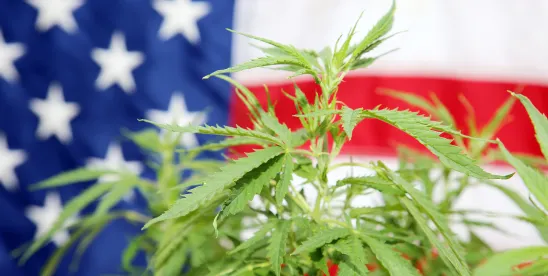There’s a scene just before the final firefight in Platoon, Oliver Stone’s unflinching view into the experiences of a group of young Americans fighting in Vietnam, that reminds me of the state of the potential rescheduling of marijuana by the federal government. In the scene, as Sgt. “Red” O’Neill (played with the typical enthusiasm and charm of John McGinley) is ordered into battle by the hardened Staff Sgt. Bob Barnes (remarkably played in an ominous way that few others at the time could by peak Tom Berenger), Red begs off the mission and says “I got a bad feeling about this one.” When it comes to rescheduling, I’m starting to get that feeling as well.
We’ve written before that with rescheduling, with all of the excitement and pomp and circumstance that came with its announcement in the last year of the Biden administration, the whole thing was beginning to look like it may be a pipe dream as President Trump announced his picks to lead DOJ, FDA, and DEA.
Our friends at Marijuana Moment recently reported another setback – or at the very least, a significant delay – to rescheduling:
The Drug Enforcement Administration (DEA) judge who’s overseen the ongoing marijuana rescheduling process is retiring, saying that “all matters filed in this case will be forwarded to” President Donald Trump’s newly Senate-confirmed agency administrator “for whatever action, if any, he deems appropriate,” as there is for now no judge to hear the issue.
…
“The Controlled Substances Act requires that DEA administrative enforcement hearing proceedings must be conducted in accordance with the Administrative Procedure Act and presided over by an Administrative Law Judge. 21 U.S.C. § 824(c)(4); 5 U.S.C. § 556(b)(3),” he said. “Until there is a change in this circumstance, all matters filed in this case will be forwarded to the DEA Administrator, for whatever action, if any, he deems appropriate.”
…
What this means is that, for the time being at least, the stalled-out rescheduling case will be squarely within the purview of Cole, the newly confirmed administrator of DEA.
Notably, while Cole has said that examining the rescheduling proposal would be “one of my first priorities” if he was confirmed for the role, he has refused to say what he wants the result to be and has in the past made comments expressing concerns about the health effects of cannabis.
In May, a Senate committee advanced the nomination of Cole to become DEA administrator amid the ongoing review of the marijuana rescheduling proposal that he has so far refused to commit to enacting.
Cole—who has previously voiced concerns about the dangers of marijuana and linked its use to higher suicide risk among youth—said in response to senators’ written questions that he would “give the matter careful consideration after consulting with appropriate personnel within the Drug Enforcement Administration, familiarizing myself with the current status of the regulatory process, and reviewing all relevant information.”
…
It’s been six months since Mulrooney temporarily paused hearings on a proposal to move cannabis from Schedule I to Schedule III of the CSA that was initiated under the Biden administration. And in a joint report to the judge submitted on Monday, DEA attorneys and rescheduling proponents said they’re still at an impasse.
The judge initially agreed to delay the rescheduling proceedings after several pro-reform parties requested a leave to file an interlocutory appeal amid allegations that certain DEA officials conspired with anti-rescheduling witnesses who were selected for the hearing.
Originally, hearings on the proposed rescheduling rule were set to commence on January 21, but those were cancelled when Mulrooney granted the appeal motion.
The appeal came after the judge denied a motion that sought DEA’s removal from the rescheduling proceedings altogether, arguing that it is improperly designated as the chief “proponent” of the proposed rule given the allegations of ex parte communications with anti-rescheduling witnesses that “resulted in an irrevocable taint” to the process.
Meanwhile, the Justice Department told a federal court in January that it should pause a lawsuit challenging DEA’s marijuana rescheduling process after Mulrooney canceled the hearings.
…
Further, a coalition of health professionals that advocates for cannabis reform recently asked that the DEA judge halt future marijuana rescheduling hearings until a federal court is able to address a series of allegations they’re raising about the agency’s witness selection process.
Separately, the House Appropriations Committee on Tuesday approved a spending bill that contains provisions to block the Justice Department from rescheduling marijuana.
The rescheduling proceedings have generated significant public interest. While moving marijuana to Schedule III wouldn’t federally legalize it, the reform would free up licensed cannabis businesses to take federal tax deductions and remove certain research barriers.
I’ve written before that progress – particularly when it comes to issues as complex as cannabis reform in the United States – is rarely a straight line, but I’m not getting good vibes about rescheduling happening any time soon. There is no deadline for the Trump administration to act on rescheduling, and there doesn’t seem to be any meaningful appetite to do so.
So, while rescheduling is very much alive, and the case for rescheduling is as strong as it ever has been, we’re left to wait and see what, if anything, the federal government will do.




 />i
/>i

